IMSML Website Article 4/2023: Resolution MSC.523(106) - Amendments to the International Code for the Construction and Equipment of Ships Carrying Liquefied Gases in Bulk (IGC Code)
Resolution MSC.523(106) was made by the Maritime Safety Committee at its 106th Session (MSC 106). It is the fourth item listed in the Appendix 1 of the Marine Department’s (MARDEP) Malaysian Shipping Notice, MSN 03/2023. According to the summary provided by MARDEP, firstly, Resolution MSC.523(106) amends Chapter 6 of the IGC Code, which deals with Materials of Construction and Quality Control. Secondly, in particular, the application of high manganese austenitic (hi-Mn) steel for cryogenic service. Third, it permits the use of high manganese austenitic steel for type A, B, and C tanks, for among others butane and methane (LNG) as cargo. Fourth, the amendment enters into force on 1 January 2026.
MSC.523(106) is focused on amendments to Chapter 6 on ‘Materials of Construction and Quality Control’. The old Table 6.3 has now been replaced with a new Table 6.3, see Regulation 6.4.1. Table 6.3 contains temperature specification to plates, sections and forgings found in cargo tanks, secondary barriers. Note that the impact test required for forgings used in critical application shall be subject to special consideration by regulators who administer this IGC Code.
The process pressure are for vessels where the design temperatures are below -55 degrees Celsius to -165 degrees Celsius. Note that if there are requirements for design temperatures below 165 degrees Celsius, this shall be specially agreed with the regulators.
The maximum thickness applicable here are 25mm. Note that there are special test for certain materials like 1.5% Ni, 2.25% Ni, 3.5% Ni and 5% Ni with thickness greater than 25 m. For these materials, there are three categories of impact test, with corresponding test temperatures (in degrees Celsius):
[1] 25mm < t < / = 30 mm : 10 degrees Celsius below design temperature;
[2] 30 < t < / = 35 : 15 degrees below design temperature;
[3] 35 < t < / = 40 : 20 degrees Celsius below design temperature.
**The energy value for [1]-[3] above shall be in accordance with the table for the applicable type of test specimen. For material thickness of more than 40 mm, the Charpy V-notch values shall be specially considered. For further information on the impact tests involving the Charpy V-notch in materials science, see https://en.wikipedia.org/wiki/Charpy_impact_test (accessed on 14 August 2023).
Table 6.3 has a long list of various types of nickel steel, with the relevant minimum design temperature, and the impact test temperature. For example, at one end of the spectrum, there is 1.5% nickel steel (which may be normalised, or normalised and tempered, or quenched and tempered, or TMCP). Note that for TMCP nickel steels are subject to acceptance by the relevant IMO Administration / State regulators.
For this material, the minimum design temperature is -60 degrees Celsius, and its impact test temperature is -65 degrees Celsius. Whilst at the other end of the spectrum, there is Austenitic Fe-Ni alloy (36% nickel) (which is subject to heat treatment as agreed). For this material, the minimum design temperature is -165 degrees Celsius, but their impact test temperature is ‘not required’.
In between these two extreme ends, there are various types of nickel steel , and other types of Austenitic steels, that are alloys either with nickel or manganese. Note that a lower minimum design temperature for quenched and tempered steels may be specifically agreed with relevant IMO Administration / State regulators.
An important part of Table 6.3 is the sampling frequency subject to ‘Tensile and Toughness (Impact) Test Requirements’. Each ‘piece’ of plate is to be tested. Each ‘batch’ of sections and forgings has to be tested. Toughness are to be judged using the Charpy V-Notch test for materials science as follows:
[1] Plates - Transverse test pieces, with a minimum average energy value of (KV) 27J;
[2] Sections and forgings - Longitudinal test pieces, with a minimum average energy (KV) of 41J.
Thank you for reading IMSML Website Article 4/2023
Stay tuned for the next IMSML Website Article 5/2023: Resolutions MSC.524(106) - Amendments to the International Code for Safety for Ships Using Gases or other Low-Flashpoint Fuels (IGF Code)
Signing-off for today,
Dr Irwin Ooi Ui Joo, LL.B(Hons.)(Glamorgan); LL.M (Cardiff); Ph.D (Cardiff); CMILT
Professor of Maritime and Transport Law
Head of the Centre for Advocacy and Dispute Resolution
Faculty of Law
Universiti Teknologi MARA Shah Alam
Selangor, Malaysia
Monday, 14 August 2023
Note that I am the corresponding author for the IMSML Website Articles. My official email address is: uijoo310@uitm.edu.my
